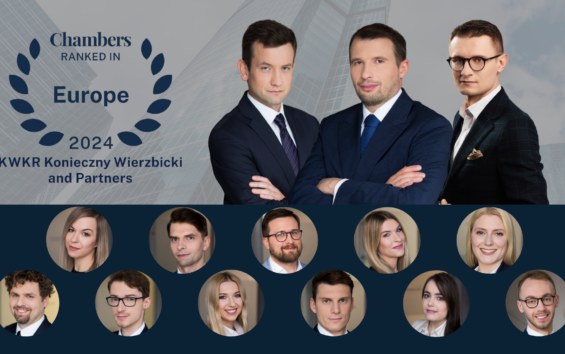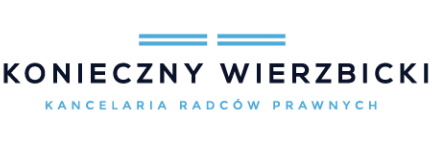A Simple Joint-Stock Company differs from other models of capital companies existing in Polish law in the type of contributions made. This, in turn, may give rise to some doubts as to their valuation.
Any form of contribution
One of the most important features distinguishing a simple joint-stock company from other capital companies is the definition of a non-cash contribution made to the company to cover shares as any contribution having a property value. This refers especially to contributions in the form of provision of work or services. This definition of contribution contrasts with the regulation of the so-called contribution capacity. This capacity does not allow a contribution of work or services in a capital company. At the same time, it brings S.J.S.C. closer to partnerships. The form of the contribution is, in principle, fully free – as long as its material value can be determined.
In this case, we can distinguish two types of contributions in S.J.S.C.:
- capital contributions – include cash and non-cash contributions having the capacity of contribution in kind. They are allocated on account of share capital;
- non-equity contributions – without in-kind capacity, most often taking the form of work and service provision. They are also not allocated towards the share capital.
Valuation of contributions
In the case of traditional contributions to a capital company, i.e. in cash and in-kind (e.g. in the form of real estate or equipment), the problem of valuation usually comes down to determining the fair value of the asset. The situation is different in the case of S.J.S.C., where the contribution may be human resources. The free nature of the S.J.S.C. allows adopting any rules when valuing the work or services of the shareholder. None of these elements contribute to the share capital, the amount of which is of most interest to the contracting parties. Therefore, from the perspective of trading, there are no risks associated with overvaluing this type of contribution. In addition, the 3-year deadline for making contributions forces the shareholders (taking up shares for human resources) to start providing the work or services they declared.
Thus, the valuation of individual contributions depends primarily on mutual arrangements between the shareholders of S.J.S.C., taking into account the market conditions under which the company operates and adherence to the fair value of non-cash contributions credited to share capital. It can therefore be assumed that a shareholder’s non-cash contribution of, for example, his high level of IT skills, experience, or know-how will be valued equally or even higher than “traditional” cash capital, thus giving the originators, creators, and inventors – and not necessarily the investors – a decisive role in the shareholder structure.
Share capital
The asset structure of a S.J.S.C. is characterized by two essential elements. These are the share capital, which serves as the basic capital but is structurally different from the share capital known on the grounds of the CCC, and the shares without a nominal value. S.J.S.C. resigns from the institution of share capital, adopted on the grounds of Inc. and SA., in favor of the share capital, the minimum value of which is PLN 1.
Share capital – as opposed to initial capital – is not permanent. In addition, its amount cannot be determined in the articles of association. As a result, modification of its amount does not take place within a formalized procedure. Share capital is increased only by contributions made, as opposed to non-capital contributions or contributions that are only declared in the articles of association.
Share capital is subject to disclosure in the business register of the court, as the change in its amount. Motivating the adoption of the share capital model, numerous disadvantages connected with share capital were pointed out. Attention was drawn to its close connection with the share rights of shareholders. This, in turn, made it much more difficult to form a strong position of shareholders offering primarily human capital. The abandonment of this structure is also reflected in the foreign practice – in the U.S. it is not at all required to have share capital in a certain minimum amount. The situation is similar in many European countries, where at most a minimum amount of EUR 1 is introduced (e.g. France, Italy).
In this context, concerns about the existence of companies with no inputs other than human capital should be considered exaggerated. Counterparties have access to data on the amount of share capital (in other words, the sum of cash contributions and traditional in-kind contributions). Thus, they can verify entities with no classical assets on the market. This, in turn, may lead to a situation, that the establishment or commencement of activity by simple joint-stock companies that may, in many cases, take place only after obtaining an investor, ensuring a transparent capital contribution.
More advantages than disadvantages?
A S.J.S.C. thus represents a kind of compromise between the stability of a limited liability company and the potential that human resources contains. Of course, accounting for human resources itself can pose some difficulty. Especially if the contribution includes innovative solutions which have not been present on the market so far. Equally problematic may be differentiation in the valuation of work of various entities rendered to the same company.
Increased freedom in terms of contributions made to the company offers a whole range of possibilities. Startups or companies that are unwilling or unable to commit cash contributions to their operations may particularly benefit. We invite you to contact us to learn about all the opportunities and possibilities for a particular company!
Do you want to be up-to-date? Subscribe to our newsletter!

